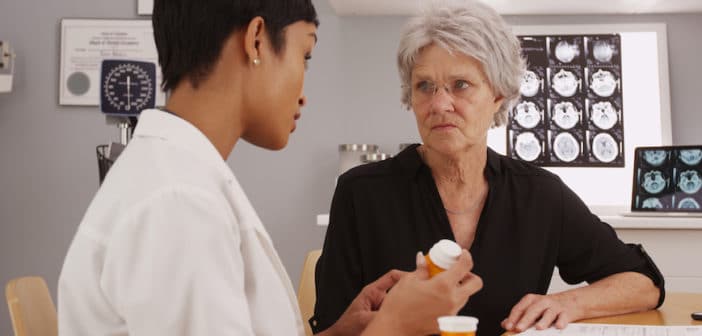This post was originally published on February 3, 2016.
In the digital age, it’s natural to assume that communication has improved; that we are talking to each other more frequently and efficiently. But I am often shocked to learn that even businesses with multiple locations, like where I get my oil changed, don’t have databases that link to each other. Of course, how long it’s been since I have changed my air filter is a lot less important than, say, whether I have ever overdosed—a vital piece of information that should be a part of my medical records. You would think a master record like this should be accessible online for all treating health professionals. Turns out, nope.
A piece in the Seattle Times highlights a recent finding that nine out of 10 people who overdose on prescription opioid medication continue to be prescribed opiates after the incident. Some even go on to have a second overdose. And 70% were found to have gotten that prescription from the same doctor who gave them the original medication. So either treating physicians aren’t being alerted when their patient ODs or they are and just slap their patients on the wrists and ask them to do better next time.
A Hard Pill to Swallow
No one wants to believe physicians are knowingly overprescribing medication. No matter what statistics say (which is that there has been a 200% increase in opioid overdoses since 2000), doctors continue to have freedom to prescribe potent pain pills to just about anyone. It’s not that I think people who endured four years of pre-med, four years of medical school and another three to seven years of medical residency are so cavalier with their ethics that they don’t care whether their patients live or die—quite the opposite. It’s just with the changes in heath care over the last 20 years, physicians seem to be less connected to their patients. They work more and earn less and are forced to turn ‘em and burn ‘em. So what do you do if you have to treat too many people with too little time? You give them the most powerful medication available so they don’t come back complaining.
This method might be effective for treating pain, but it’s a terrible approach to providing health care to humans. The majority of patients may not end up with a problem. I have no data on the ratio of people prescribed opiates to those who end up addicted or overdosing. However, there is no question that more people have become addicted to and overdosed on opiates since doctors began loosening the reigns on prescriptions.
The quandary of whether and how much to prescribe continues, but making vital information accessible among medical professionals, like the incident of an overdose, should certainly be part of the equation. How does something as important as the treating doctor being alerted when their patient ODs on prescribed medication fall through cracks in the system?
How Do We Treat the Problem?
Even though opiate addiction continues to spiral out of control, we are struggling to find a solution. While there has been some effort to federally regulate the prescription of certain opiates, and some states have become proactive in banning new drugs, there hasn’t been a national lockdown on what doctors are prescribing. Since there isn’t a central database (which is shocking), maybe that is the solution? I don’t mean to be an over-simplified Sally here but if I had a nickel for every addict I know who had three or more doctors prescribing them meds when they were using, I’d have enough to buy a shirt at Anthropologie (that’s a lot).
It may be nearly impossible for doctors to know how much pain a person is actually in, but it’s very possible to at least check and see if other doctors are already prescribing them meds. They have just as much of an ethical responsibility to help people in pain as they do to not over-prescribe. Opioid medication is a godsend for those who have been in accidents, have physical disorders or chronic pain issues; and it’s not an option to deny them treatment so that they can lead functioning lives. But we need to work on finding a way to give people what they need without perpetuating addiction and death.
Food for Thought
Here’s another thought—what about pain management? There are doctors out there specially trained to help patients get on enough—but not too much—medication and monitor them. I don’t know how widely used these doctors are, but I do know they are especially useful for alcoholics and addicts in recovery. These are people who need to take pain medication but don’t want to lose their lives, both literally and figuratively.
I am not claiming to be able to solve the country’s opiate problem in one article (though that would be awesome). I guess I just find myself continually disappointed by our inability to take control of such a grave issue that is spreading like wildfire. Of course, I am talking about HPV. But the opiate problem is really bad too.
Sponsored DISCLAIMER: This is a paid advertisement for California Behavioral Health, LLC, a CA licensed substance abuse treatment provider and not a service provided by The Fix. Calls to this number are answered by CBH, free and without obligation to the consumer. No one who answers the call receives a fee based upon the consumer’s choice to enter treatment. For additional info on other treatment providers and options visit www.samhsa.gov.





